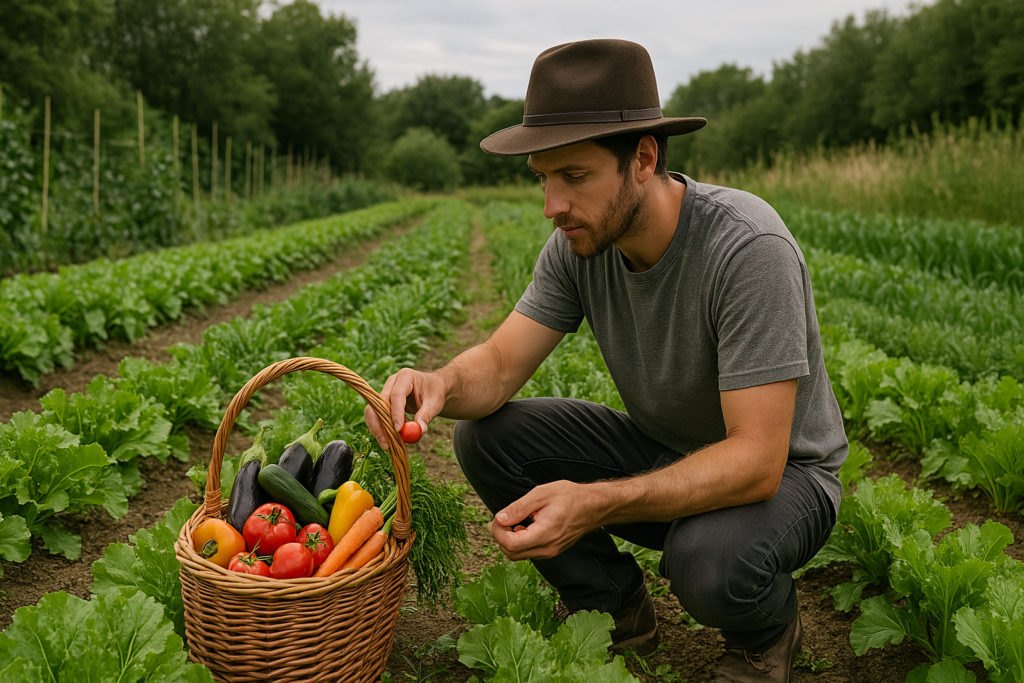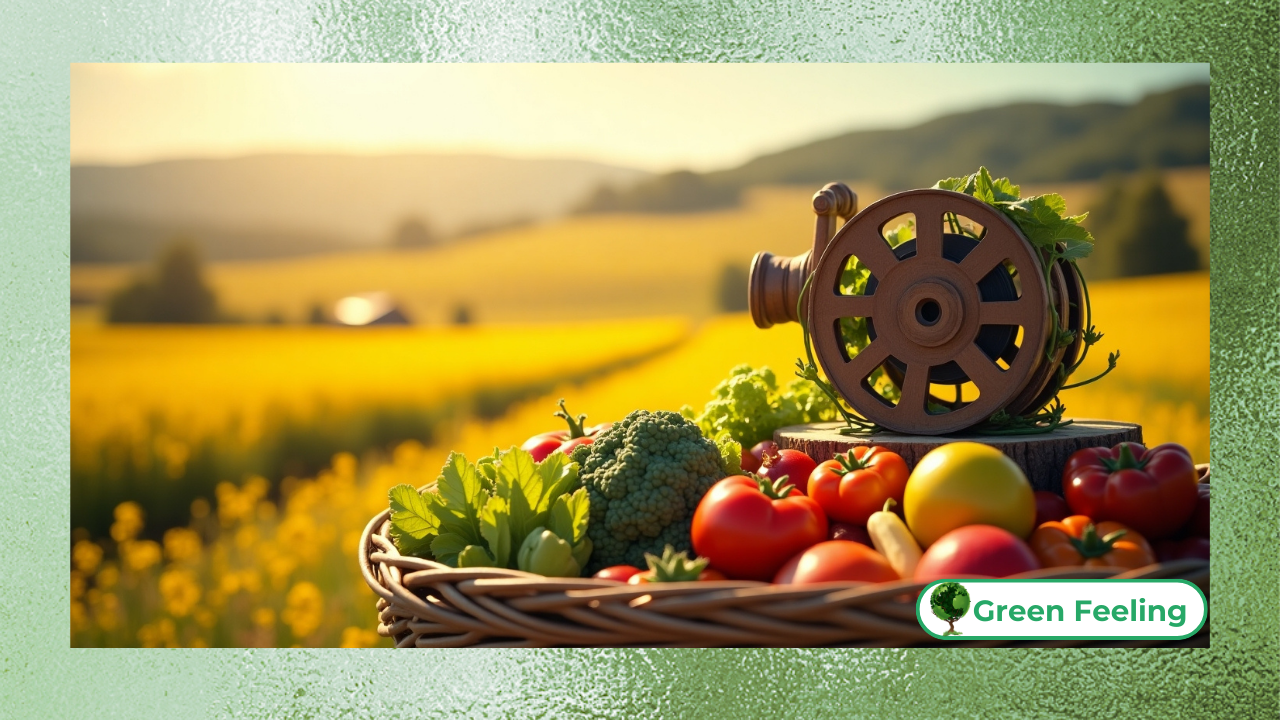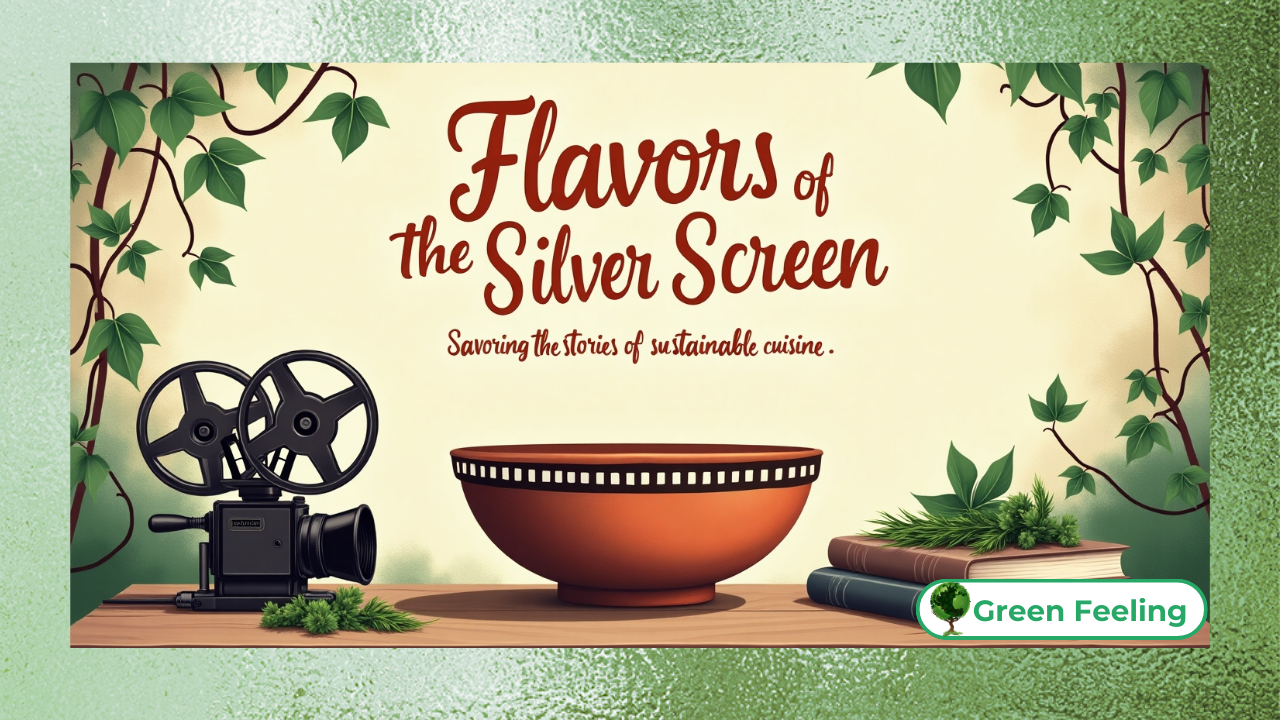Must-Watch Documentaries About Agroecology and Organic Farming
Documentaries have become powerful tools for spreading knowledge about sustainable agriculture, offering both education and inspiration to farmers, activists, and conscious consumers worldwide.

These films capture compelling stories of agricultural transformation, showcasing how agroecology and organic farming can solve some of our most pressing environmental and food security challenges.
From small-scale family farms to large-scale agricultural revolutions, these visual narratives bring to life the principles of working with nature rather than against it.
The selected documentaries in this article represent the most insightful, well-researched, and visually stunning films about ecological farming practices.
They cover diverse perspectives – from scientific explanations of soil ecosystems to heartwarming stories of farming communities revitalizing their land.
As farmer and author Wendell Berry once said, “The Earth is what we all have in common” – these films beautifully illustrate this shared connection through the lens of sustainable agriculture.
Groundbreaking Documentaries That Changed the Conversation
Several landmark documentaries have played pivotal roles in bringing agroecology into mainstream consciousness:
1. “The Biggest Little Farm” (2018)
- Chronicles an urban couple creating a biodiverse farm
- Shows 7-year transformation of depleted land
- Beautifully illustrates ecosystem interconnectivity
2. “The Need to GROW” (2017)
- Explores innovative solutions for sustainable food production
- Features revolutionary soil restoration techniques
- Highlights children’s perspective on food systems
3. “Kiss the Ground” (2020)
- Narrated by Woody Harrelson
- Explains soil’s role in climate change mitigation
- Showcases regenerative agriculture success stories
Documentary Key Focus Notable IntervieweesThe Biggest Little Farm Biodynamic farming John Chester, Alan YorkThe Need to GROW Soil regeneration Rosario Dawson, Michael SmithKiss the Ground Regenerative agriculture Gisele Bündchen, Tom Brady
Hidden Gems of Agroecological Cinema
Beyond the well-known films, these lesser-known documentaries offer equally valuable insights:
“Living Soil” (2018)
- 30-minute film about soil microorganisms
- Features cutting-edge soil science research
- Perfect for educational screenings
“The Seed: The Untold Story” (2016)
- Documents seed diversity loss
- Follows seed keepers protecting biodiversity
- Exposes corporate control of seeds
“Organic Food: Hype or Hope?” (2019)
- BBC-produced balanced investigation
- Examines scientific evidence behind organic claims
- Compares conventional vs organic systems
As agricultural scientist Dr. Vandana Shiva states in The Seed:
“Seeds are the first link in the food chain. When you control seeds, you control life.” – Vandana Shiva.
These films reveal why protecting agricultural diversity matters for our collective future.
+ Music and Nature: How Soundtracks Can Echo Sustainability in Cinema
Documentaries Focusing on Global Movements
Several powerful films capture agroecology’s global impact:
1. “The Greenhorns” (2011)
- Profiles young American organic farmers
- Captures new generation’s agricultural spirit
- Inspires youth to consider farming careers
2. “Fair Traders” (2018)
- Follows pioneers of ethical agriculture
- Shows organic farming in Switzerland, India, and Africa
- Demonstrates viable business models
3. “The Harvest” (2011)
- Exposes migrant workers’ conditions
- Contrasts industrial vs small-scale organic
- Sparks important labor discussions
+ Gastronomy and Sustainability in Cinema: Recipes Inspired by Films
Why These Documentaries Matter Now More Than Ever
In an era of climate change and ecological degradation, these films serve multiple crucial functions:
- Education: Explaining complex ecological concepts visually
- Inspiration: Showcasing successful alternatives to industrial agriculture
- Documentation: Preserving traditional farming knowledge
- Mobilization: Encouraging viewers to take action
- Hope: Demonstrating that positive change is possible
As filmmaker Josh Tickell notes in Kiss the Ground:
“We can literally save the world by changing how we farm.” – Josh Tickell.
These documentaries provide both the knowledge and motivation to make that change happen.
How to Use These Films for Maximum Impact
To extend these documentaries’ influence beyond viewing:
- Host community screenings with discussion sessions
- Incorporate into school curricula at various levels
- Share clips on social media to spread key messages
- Organize film festivals focused on agricultural solutions
- Use as training tools for new farmers
The Future of Agroecological Storytelling
Emerging trends in agricultural documentaries include:
- Virtual reality experiences of farm ecosystems
- Interactive web documentaries with farmer interviews
- Short-form series for digital platforms
- Youth-produced films about food systems
- Animation hybrids explaining soil science
These innovations promise to make agroecological knowledge even more accessible and engaging to broader audiences.
+ The Influence of Indigenous Culture on Agroecology in Bolivia
Conclusion
These documentaries do more than inform—they transform viewers’ understanding of our food system and their role within it.
By witnessing both the problems of industrial agriculture and the promise of ecological alternatives, audiences emerge empowered to support and participate in the growing agroecology movement.
Whether you’re a farmer, educator, activist, or simply an eater, these films will change how you think about food, farming, and our relationship to the Earth.
The power of these stories lies in their ability to connect personal choices to global consequences, revealing how every meal we eat is a vote for the kind of world we want to live in.
They expose the hidden costs of factory farming—environmental destruction, animal suffering, and the erosion of rural communities—while showcasing regenerative practices that heal the land, nourish people, and strengthen local economies.
From urban gardens to indigenous food sovereignty movements, these films highlight real-world solutions that anyone can be part of.
Moreover, they challenge us to move beyond passive awareness into active participation.
Supporting small-scale farmers, reducing food waste, advocating for policy changes, and even growing our own food are tangible steps toward a more just and sustainable future.
The shift from industrial monocultures to diversified agroecosystems isn’t just an environmental necessity—it’s a cultural awakening, redefining our values around health, equity, and stewardship.
Ultimately, these documentaries remind us that change begins with seeing differently.
When we recognize the interconnectedness of soil, food, and community, we become agents of transformation.
The call to action is clear: the future of food is in our hands, and every choice matters.
By embracing agroecology, we don’t just imagine a better world—we help create it, one seed, one meal, and one conversation at a time.
Let these films inspire you to see the change—and then be the change. The movement starts with awareness but grows through action.
Together, we can cultivate a food system that respects people and the planet, ensuring abundance for generations to come.
References:
- Chester, J. (2018). The Biggest Little Farm. Apricot Lane Films.
- Tickell, J. (2020). Kiss the Ground. Big Picture Ranch.
- Shiva, V. (2016). The Seed: The Untold Story. Collective Eye Films.
- Smith, M. (2017). The Need to GROW. Earth Conscious Films.
- BBC (2019). Organic Food: Hype or Hope?. BBC Horizon.






